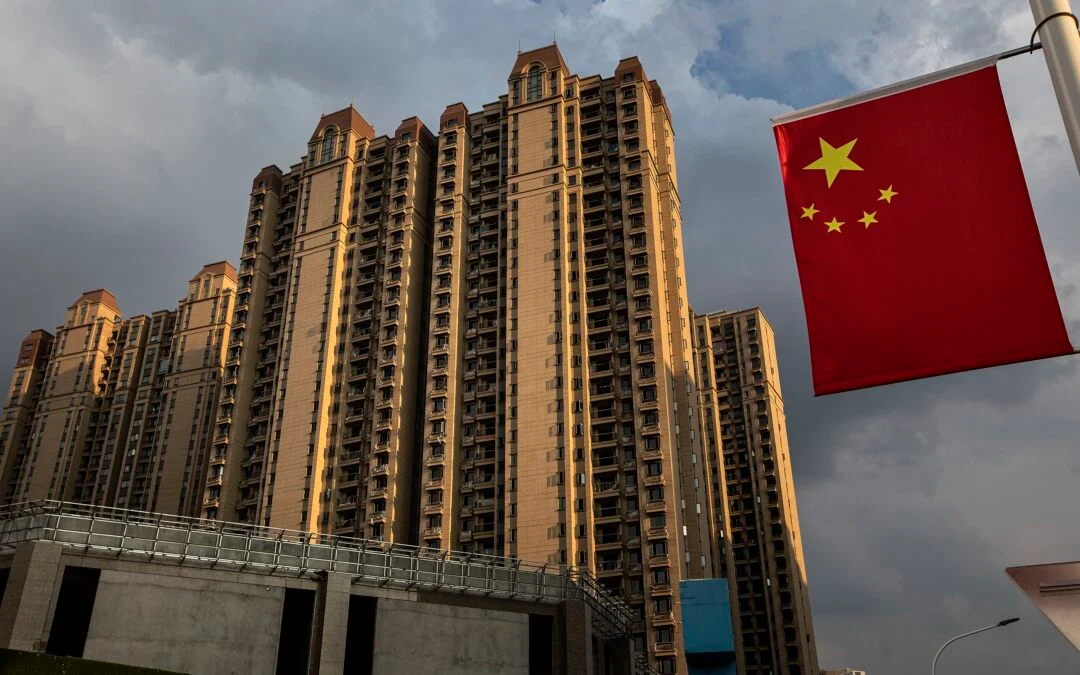China faces Real Estate crises
China’s property bubble, a key driver of its economy and a source of demographic issues, may be bursting. Property values and investments are declining, and land developers are facing financial distress. The situation could worsen as more property units are completed and flood the market.
For years, property values in China only increased. Newly built homes and apartments became the preferred investments for the country’s new landlords, who channelled fortunes from other economic sectors. State banks and investment companies provided easy money, eased regulations, and fuelled expectations of continued growth, further inflating the bubble. Rising property values benefited land developers, typically state-owned enterprises, and allowed Beijing to highlight the contributions of construction projects to economic growth.
According to Jerry O’Reilly, a real estate investor at Cash Home Buyers Crew, the Chinese government permitted a rapidly growing real estate market to flourish with minimal regulations. This expansion allowed for new personal wealth through property investments and construction projects, helping more citizens enter the middle class. Government officials, wary that curbing this growth might cause unrest due to wealth disparities, opted against strict regulations. However, the surge in property values created challenges for young citizens aiming to buy homes and start families. This situation is contributing to China’s demographic issues, including declining marriage and birth rates, which impact the country’s ability to compete in labour-intensive industries and sustain economic growth.
However, bubbles cannot continue to expand indefinitely. Eventually, the number of speculators—those who buy properties solely on the assumption that they can sell to other speculators at even higher prices—dwindles. When this happens, the bubble bursts. Property prices drop, landlords are stuck with unsellable properties, banks and investment firms incur significant losses, and the government is compelled to intervene and bail out these institutions.
This pattern has repeated itself in various countries: The Soviet Union in the 1950s, Nigeria in the 1960s, and Japan in the early 1990s. China experienced a similar situation in the late 1990s, and it’s happening again now. The government is starting to worry about the immense size of the property bubble and is taking steps to mitigate its impact on the wider economy.
“The housing market accounted for 25–29 percent of China’s GDP in 2023,” said O’Reilly. “The government has finally introduced new regulations to diversify the economy and reduce its heavy reliance on property.” These measures have accelerated the ongoing decline in property values.
In October, the average price of newly built homes across 70 Chinese cities fell by 5.9 percent year-over-year, following a 5.8 percent decline in September. This marked the sixteenth consecutive month of price decreases, reaching the steepest rate since April 2015. The price drops were widespread in all major cities. Property investment spending also declined, falling by 10.3 percent year-over-year in October after a 10.1 percent drop in September.
To address the property bubble, Beijing expanded regulations, and the People’s Bank of China (PBC) cut official borrowing rates to mitigate the impact of declining property values and investment. In October, PBC Governor Pan Gongsheng announced that the central bank might further reduce the reserve requirement ratio by 25–50 basis points by the end of the year to improve liquidity conditions.
The Central Bank’s attempts to ease liquidity arrived too late to save some land developers from financial troubles. Last year, Evergrande and Country Garden, two of China’s largest developers, defaulted on significant loans. This was followed by Yuzhou Group’s default a few months ago, leading to its $6.7 billion restructuring, and the recent insolvency of Zhongzhi Enterprise Group.
“This sparked a wave of investor fear in the real estate sector,” said O’Reilly. “Fewer people are now buying property as an investment, and even fewer are investing cash in new construction. This situation could worsen, as many prepaid units still need to be completed by developers.”
“The developers lack the funds to finish the sold housing units. Additionally, 60 million completed units remain unsold, equating to a four-year housing supply,” O’Reilly stated. “Investors are reluctant to spend more money to complete prepaid units, leaving them unfinished and abandoned.”
Michael Ashley Schulman, CFA, partner, and chief investment officer of Running Point Capital Advisors, noted that significant property deflation has already occurred. “Now it’s about picking up the pieces and rebuilding confidence by clearing excess inventory, completing or demolishing unfinished projects, and encouraging home ownership with low interest rates and substantial government incentives,” he explained in an email to The Epoch Times. “Without a comprehensive clean-up, the personal real estate market could remain troubled for years.”













